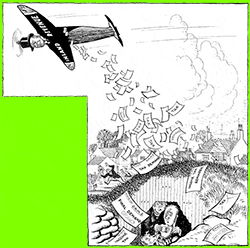 t journalists will be banned from the front line in Afghanistan once the date for the General Election is set.
t journalists will be banned from the front line in Afghanistan once the date for the General Election is set.I can understand the reasoning behind a certain amount of discretion about military matters in time of war - censorship imposed upon the newspapers by the wide-ranging 1914 Defence of the Realm Act was intended to maintain the morale of families, many of whose members would vote in an election that eventually came in 1918.
But nevertheless war journalism, from Winston Churchill's commission as a war reporter during the Boer war, through Leslie Illingworth's satirical cartoons for the Daily Mail to the embedding of journalists in military units today (which is going to be banned), has been essential in dispelling rumours about what might really be happening at the front.
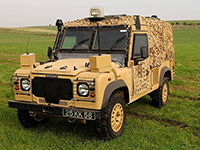 But what's really happening at the front may be, for Prime Minister Gordon Brown, the problem. For example, Snatch Land Rovers (left), nicknamed "mobile coffins" due to their vulnerability to mines, are to be phased out in favour of more robust Ridgbacks. But, after Gordon Brown's markedly uncensored visit to troops in Afghanistan on March 5 - after giving evidence to the Chilcot Inquiry on Britain's involvement in the Iraq War about his commitment
But what's really happening at the front may be, for Prime Minister Gordon Brown, the problem. For example, Snatch Land Rovers (left), nicknamed "mobile coffins" due to their vulnerability to mines, are to be phased out in favour of more robust Ridgbacks. But, after Gordon Brown's markedly uncensored visit to troops in Afghanistan on March 5 - after giving evidence to the Chilcot Inquiry on Britain's involvement in the Iraq War about his commitment 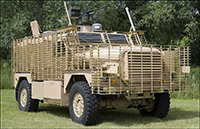 to funding the Armed Forces that was immediately rebutted by senior military chiefs - Shadow Defence Secretary Liam Fox claimed that the procurement of 200 Ridgbacks (right) was at odds with the tender for 400 originally put out.
to funding the Armed Forces that was immediately rebutted by senior military chiefs - Shadow Defence Secretary Liam Fox claimed that the procurement of 200 Ridgbacks (right) was at odds with the tender for 400 originally put out.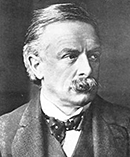 If this is the reason for the media blackout, it is a myopic repetition of history by those who appear to have forgotten it. When David Lloyd George took over as Prime Minister from Herbert Asquith after the latter's resignation in 1916, he had no choice but to relax reporting restrictions upon newspapers somewhat, because the tales of soldiers returning from the fighting were at odds with tales of victory planted by official sources.
If this is the reason for the media blackout, it is a myopic repetition of history by those who appear to have forgotten it. When David Lloyd George took over as Prime Minister from Herbert Asquith after the latter's resignation in 1916, he had no choice but to relax reporting restrictions upon newspapers somewhat, because the tales of soldiers returning from the fighting were at odds with tales of victory planted by official sources.Brown might again ban forces personnel in Afghanistan from using social media, as happened in February last year only to have the ban lifted that August, but is he going to cancel leave and Medivac during the period of "purdah" - a domestic political protocol intended to make government department communications equitable to all political parties once an election has been declared? If he wishes to put us all int
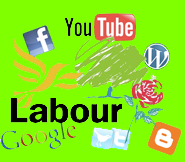 o a position where we don't talk about the war, he's on a hiding to nothing: if returning soldiers forced Lloyd George to loosen his government's stranglehold on the press, what will be the effect of full-on deployment of social media during [the] British election?
o a position where we don't talk about the war, he's on a hiding to nothing: if returning soldiers forced Lloyd George to loosen his government's stranglehold on the press, what will be the effect of full-on deployment of social media during [the] British election?One thing's clear to me: if the Government thinks it can stage-manage information on a war that half the world's reporting on, we'd better keep an eye on the ballot boxes on election night.











Quite right. The social media ban from February to August happened to cover the local and European election campaigns from April to June. Discuss.
ReplyDeleteI have to admit I never made the connection there - thanks for the gen!
ReplyDelete